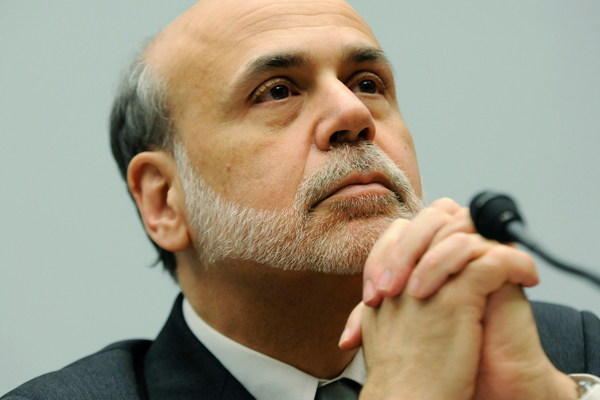As the Supreme Court shows every sign of throwing out “Obamacare” and leaving 30 million Americans without health insurance, another drama is being played out in the quiet corridors of the Federal Reserve system that may affect even more of us.
Taxpayers will be on the hook for another giant Wall Street bailout, and the economy won’t be mended, unless the nation’s biggest banks are broken up.
That’s not just me talking, or the Occupier movement, or that wayward executive who resigned from Goldman Sachs a few weeks ago. It’s the conclusion of the Dallas Federal Reserve, one of the most conservative of the Fed’s regional banks.
The lead essay in its just released annual report says a cartel of giant banks continues to hobble the recovery and poses an ongoing danger to the economy.
Wall Street’s increasing power remains “difficult to control because they have the lawyers and the money to resist the pressures of federal regulation.” The Dodd-Frank act that was supposed to control Wall Street “leaves TBTF [too big to fail] entrenched.”
The Dallas Fed goes on to argue that the Fed’s easy money policy can’t be much help to the U.S. economy as long as Wall Street is “still clogged with toxic assets accumulated in the boom years.”
So what’s the answer, according to the Dallas Fed? It’s “breaking up the nation’s biggest banks into smaller units.”
Thud. That’s the sound the report hitting the desks of Wall Street executives. They and their Washington lobbyists are doing what they can to make sure this report is discredited and buried.
When I spoke with one of the Street’s major defenders in the Capitol this morning he snorted, “Dallas represents small regional banks that are jealous of Wall Street.” When I reminded him the Dallas Fed was about the most conservative of the regional banks and knew first-hand about the dangers of under-regulated banks — the Savings and Loan crisis ripped through Texas like nowhere else — he said “Dallas doesn’t know its [backside] from a prairie gopher hole.”
So as Republicans make the repeal of “Obamacare” their primary objective (and Alito, Scalia, Thomas, Roberts, and perhaps Kennedy sharpen their knives) another drama is taking place at the Fed. The question is whether Bernanke and company in Washington will heed the warnings coming from its Dallas branch, and amplify the message.


